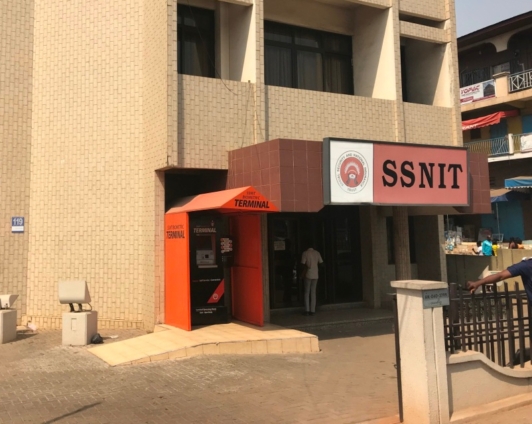Everyone must show interest in depleting pension funds – Pensions Expert
Pensions expert, Mushad Abdulai, has said every contributor to the Social Security and National Insurance Trust, SSNIT, must be concerned about the reported depletion of SSNIT reserves.
This comes after the International Labour Organisation (ILO) projected a complete depletion of SSNIT’s reserves by 2036 in an actuarial valuation study of SSNIT’s viability.
According to ILO, total income including contributions, investment income and other income, will no longer be sufficient to pay for annual expenditures including benefit payments to pensioners by 2029.
“Starting in 2029, total income (contributions, investment income and other income) is no longer sufficient to pay for annual expenditures. The reserve starts to decrease. During the year 2036, the reserve drops to zero” the research emphasised.
In this regard, Mr Abdulai said that SSNIT plays a pivotal role in society, and until issues of funding are resolved, retirement might be a nightmare, as most retirees will not reap the benefits of their hard-earned labour.
As such, he said it was important that a collaborative approach be adopted to resolving the impending crisis.
Speaking in an interview, he said “We saw it in 2011 evaluation, we saw it in 2014, we saw it in 2017, and we have seen it in 2020. I am not sure we just have to sit back as a country.
“We have gotten to a point where we don’t have to sit back as a country. I keep saying that Parliament, Labour Unions, Worker unions, there is Trade Union Congress, the media everybody needs to show interest.”
Touching on SSNIT’s debt, he explained that the government alone was highly indebted to the agency. Additionally, he said SSNIT was not reaping returns on investments, highlighting the need for other stakeholders and experts to step in to resolve the matter.
He argued that given the current contribution rate, government indebtedness, and real returns on investments, if solutions and recommendations are not followed, the next report might be worse than the present one.
“As at 31 December 2021, the total debt of the scheme was somewhere GH₵9.64 billion. Out of that government was owing 97%. We have been told that government has made good indebtedness up to January.
“If you look at the contribution rate, the government indebtedness, the real returns on investments, you look at administrative cost, you look at dependence ratio, it paints a very bad picture with regards to what the next actuarial evaluation is going to look like. The next actuarial evaluation is telling us the state of the scheme as we speak right now,” he added.
Meanwhile, SSNIT says the outcome of the study by the International Labour Organisation (ILO) is only a prediction.
According to SSNIT’s Chief Actuary Joseph Poku, the study, done every three years as required by law, gives an overview of the scheme’s status, assets and liabilities.
Speaking at a press conference on Monday, he said it also provides the management with ideas on measures to take to ensure the sustainability of the scheme
Mr Poku recounted several cases where similar projections were made, including a 2011 report that predicted SSNIT would be unable to pay funds by 2019.
“The recommendations are not going to happen at all costs, that’s not what it is. So it gives you an idea that based on these assumptions, it’s likely to happen but there is no certainty. So, in 2011, it was projected that the scheme reserved will run or will be depleted.”
“The report (2011) says, among other things, that if contribution rates were not increased in the future, the annual expenditure on benefits and registration would exceed income from contributions and the funds from 2019 would just tank,” he said.



